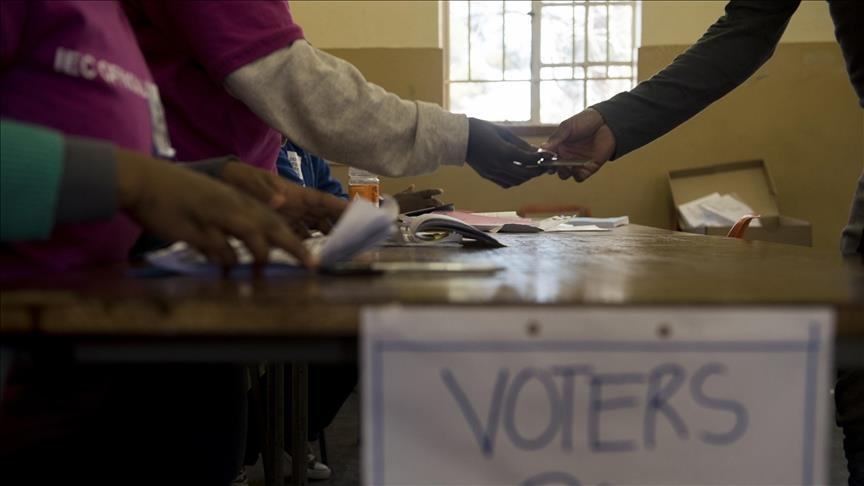When we were in primary school, the choice of class monitor or class representative often boiled down to a question of who was friendlier rather than who was stricter or more competent. That early social instinct didn't vanish on graduation. Rather, it still influences how many of us go about picking political leaders. In this blog, we look at how our childhood "voting" habits map to adult political behavior, drawing on research from the fields of social-psychological and political science.
1. Childhood Leader Preferences as Political Conditioning
At school, most children generally like their peers who are warm, friendly, and socially agreeable rather than those who are strict or authoritative.
People tend to avoid leaders who demand short-term discipline, even when that discipline is the very cost of long-term progress. Psychological studies show that humans are wired to prefer immediate comfort over delayed benefits a bias that makes strict but effective leadership far less electable.
This preference has its roots in our early experiences: the kid who enforces the rules can come across as punitive, while the likable, cooperative peer seems safe.
As adults, these instincts don't simply fade; they evolve into deep-seated biases in the way we evaluate political candidates.

2. Warmth vs. Competence: What Do Voters Really Want
Warmth first: Social psychology research shows that when people evaluate others, they often assess warmth (intentions, friendliness) before competence (ability). In one classic experiment, subjects were quicker to judge whether a person was “warm” than whether they were “competent.”PubMed
Voting implications: This political science study, based on decades of data, (ANES 1984–2008), and experiments shows that perceived candidate warmth is more influential in voters' judgments than a candidate's perceived competence, leadership, or integrity.
https://www.sciencedirect.com/science/article/abs/pii/S0261379417301774?via%3Dihub
This suggests that voters, just as in school, tend to base their support more on how "nice" or well-intentioned a candidate seems rather than how capable they are.

3. Class, Power, and the Valuation of Traits
Socio-economic status matters: According to research by Callaghan, Kraus & Dovidio, higher-SES voters focus more on competence of political candidates, while lower-SES voters prefer warmth.
Supporting this, a study in Germany showed that high-SES participants relied more on perceived competence even from just a politician's photo when deciding whom to vote for.
These findings suggest that our social class is what informs whether we favor the “strict but capable” leader versus the “warm and familiar” one much as different children favored different class monitors, depending upon which one felt more like them.

4. Ideological Differences: Who Wants What?
Not everyone values the same characteristics to the same degree. In one 2025 study, for instance, people high in right-wing authoritarianism (RWA) preferred highly competent candidates who could “clean up danger,” whereas those lower in RWA preferred warmer, more caring candidates. https://bpspsychub.onlinelibrary.wiley.com/doi/10.1111/bjso.70004
This reflects a deeper psychological pattern: our ideological worldview shapes how we weigh a candidate's personality, rooted in how we perceive threat, stability, and social order.
5. The Role of First Impressions and Visual Cues
Our judgments of leaders often begin with very basic visual cues: their faces. According to research, politicians' facial images can influence perceptions of both warmth and competence.https://www.ovid.com/journals/ppmc/abstract/10.1037/a0026513~warmth-and-competence-a-content-analysis-of-photographs?
Research has shown, for instance, that impressions of warmth among public-sector employees and leaders are potent drivers of trust.
That is similar to how in school we might have elected the class representative based on who appeared friendly and kind, not only on who actually appeared smart and capable.
6. Motivation and Political Messaging
This is something political campaigns know all too well. Messaging often taps into warmth or competence depending on the values of the target audience.
For example, individuals' beliefs and worldview (assessed via Right-Wing Authoritarianism or Social Dominance Orientation) affect whether they respond more to a "competent" or "warm" candidate. https://bpspsychub.onlinelibrary.wiley.com/doi/10.1111/bjso.70004
This is a sort of strategic mimicry of the school-yard logic: showing likability or strength, depending on what wins trust in one's "class."
7. The Governance Consequences
Emphasizing warmth over competence can have some real costs: weak institutional enforcement and shallow reform, often coupled with populist leadership.
Leaders who win on account of appearing friendly may lack the ability or resolve to carry out hard reforms.
Over time, this dynamic can erode institutional quality because voters are not choosing just anybody they select based on early social instincts, not long-term governance needs.
8. Breaking the Cycle: Moving Beyond Playground Politics
To counter this school-day voting instinct, we have to:
Raise civic awareness: teach the electorate about the trade-offs between warmth and competence.
Improve performance measurement: Demand more transparency and measurement of how politicians deliver, not just how they present.
Reform political marketing: make campaigns focus on policy and capacity, rather than personality.
Encourage self-reflection by having voters ask themselves: “Am I choosing someone because I like them or because they can do the job?”
Institutionalize accountability: Create systems, including public dashboards and citizen scorecards, which reward results over charisma.
Conclusion
This is how we chose class monitors back in primary school, and we still do today on the basis of likability rather than strictness. And according to empirical research, this suggests that voters disproportionally reward a candidate's warmth, sometimes even more than their competence. But if we want strong governance and real reform, we must move beyond playground politics. We need to reward leaders for what they do, not just how they seem.

— ✍️Written by: Kelvin Wambua Kang'alya
📸 Founder, Rshots.com – Where Passion Meets Perspective
💡 Topics: #economics #politics #research
💬 Got thoughts on this post? Share your feedback